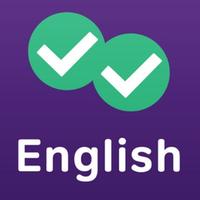Verbs
In this video, we are going to talk about the Verb. The other important part of speech. So we had a noun in the last video and in this video, we have the Verb. So what is it? A verb describes something that you can do. Can you run?
Is this an action? If it is an action, it is definitely a verb. What about think? Can you think? Is it something you can do? Well, hopefully, most of us can think.
So yes, think is a verb. So it doesn't actually have to be a physical action, like running. But as long as you could do it, such as think, that word is a verb. So let's take a look now at a couple of verbs in an actual sentence, starting with number one, the boy runs. You should remember from the last video, the noun video that boy is a noun and what is the boy doing?
Whatever the noun may be, boy, dog, cow, then you ask what is the boy? What is the dog? What is the cow doing? The answer to that question is the verb. The boy runs. This is our verb.
Now let's look at the next example. My friend John eats lots of food. John, proper noun. Noun under there. What is John doing? John, someone who eats lots of food and here we have the verb.
So again, up here, we had the noun, here we have the verb. In sentence two, we have John noun, eats is the verb, because it describes what does John do? Now that we've described what a verb is and how it functions in a sentence, we're gonna talk about different verbs. Terms of time, present, past and future and this is what we call tense, verb tense.
So starting with the first one, he speaks now. He is the noun. What does he do? He speaks. When does he speak? The answer is now, so we know it is present.
However, sometimes you will not necessarily get a word like now. The reason we know this verb is in present is because of the form. The word speak or speaks shows that it is in present tense. The verb can change. If we look here at B, notice it says, spoke. To determine tense in this case, again, present is now.
Past, what has happened. Future, what will happen. We look at this word, yesterday. Yesterday's past us. So we know that this verb here is in the past tense. A is present.
B is past. Finally, C he will speak. This is something that is going on in the future, specifically next week. So we know that this very here and it is the combination of will and speak is the future. So again, A is the present, B is the past and C, the future.
So now we have important parts of the verb, it's when it happened or the tense. Finally, we're gonna have a few examples and think of it as a game. Name that tense. Starting with A, I studied last night. When did you study last night?
Is that now? Is that tomorrow? No, it has passed. So we have past tense of the word study or the verb studied. Notice ied, the ed here. Studied, d, d.
In English, the d means it is past tense. The other slide we had a moment ago, you saw speak and speak became spoke. And the reason why is because English is a funny, weird language and some verbs are irregular, but I do not want you to worry about that for now. I just want you to know that most of the times when there's past tense and it's regular past tense you look for the ed, E-D. What about B? She will give me an answer tomorrow, will give. That is something that is happening. Not now, but in the future. So will give is the future. So there's our tense, future. Notice, just like the other slide will, will shows it's going to happen in the future. So when you see that will, you know it's future tense. And finally, C, he likes algebra more than geometry. Great. Where's the verb? What's he doing? What he's liking? So we know that this is the verb. What is he liking to do? He's liking algebra more than geometry. Is it doing that tomorrow?
Was he doing that yesterday? No, it's something that he does now and he continues to do. So we use present tense to describe ongoing states and this ongoing state is his liking of algebra more than geometry. He likes, therefore, algebra more than geometry, present tense and there you have it.
We have learned what verbs are and we have learned the different tenses.

